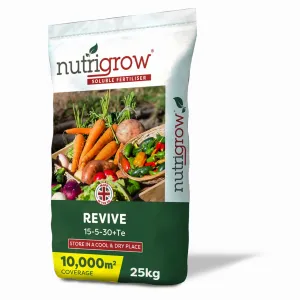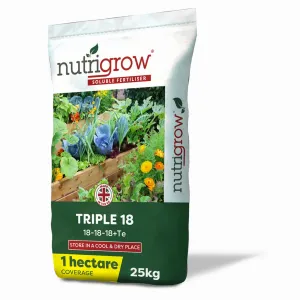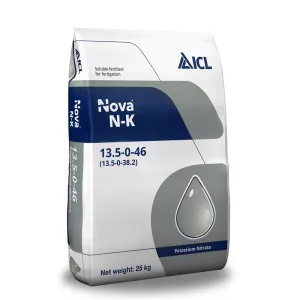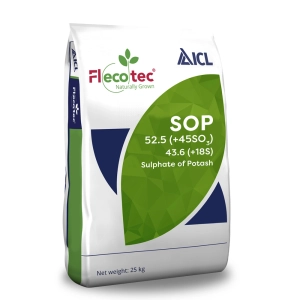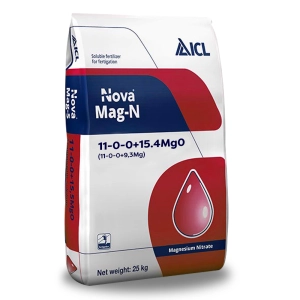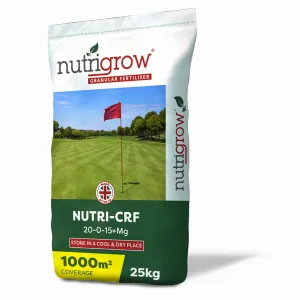What does Potassium do?
Potassium, an essential macronutrient for plants, plays a multifaceted role in ensuring their optimal health and growth. Beyond its primary functions of regulating water uptake and facilitating photosynthesis, potassium influences various aspects of plant physiology and overall vitality.
-
Water Uptake Regulation: Potassium plays a crucial role in maintaining the plant's water balance. It helps regulate the movement of water and other nutrients within the plant by controlling the opening and closing of stomata. Stomata are small openings on the surface of leaves and stems that allow for the exchange of gases, including water vapor. By regulating stomatal function, potassium helps prevent excessive water loss through transpiration, especially during hot and dry conditions. This conservation of water is vital for plants to withstand drought stress and maintain turgor pressure, which keeps them upright and healthy.
-
Photosynthesis Support: Potassium is intimately involved in the process of photosynthesis, which is the foundation of plant growth. Within chloroplasts, the cellular structures responsible for photosynthesis, potassium helps activate enzymes that drive various biochemical reactions. It also aids in the transport of sugars and other photosynthetic products throughout the plant. Adequate potassium levels are essential for efficient photosynthesis, leading to increased biomass production, healthier foliage, and better crop yields.
-
Nutrient Uptake and Transport: Potassium enhances the uptake of other essential nutrients by the plant, including nitrogen and phosphorus. It improves the efficiency of nutrient transport within the plant, ensuring that these elements are distributed where they are needed most. This synergy with other nutrients is critical for overall plant nutrition and growth.
-
Disease and Stress Resistance: Adequate potassium levels can boost a plant's resistance to various environmental stressors, such as drought, cold, and diseases. Potassium strengthens the plant's cell walls, making them more resistant to pathogen penetration and physical damage. Additionally, it helps activate defense mechanisms, such as the production of antioxidants and antimicrobial compounds, which further protect the plant from stress-related damage.
-
Enhanced Fruit and Flower Development: Potassium has a positive impact on the development of fruits, flowers, and seeds. It improves the quality and size of fruits, enhances flower formation, and promotes seed development. These benefits are particularly important for agricultural crops, ornamental plants, and fruit-bearing trees.
-
pH Regulation: Potassium ions help maintain the proper pH level in plant cells, ensuring an environment conducive to enzymatic reactions and nutrient uptake. This pH regulation is crucial for overall plant health and metabolism.
In conclusion, potassium is a vital macronutrient that contributes significantly to plant health and growth. Its roles extend beyond controlling water uptake and aiding photosynthesis, encompassing nutrient uptake, stress resistance, and the development of reproductive structures. Maintaining optimal potassium levels in the soil and ensuring its availability to plants is essential for robust and healthy vegetation, whether in agriculture, landscaping, or natural ecosystems.
Symptoms of Potassium Deficiency
Potassium deficiency, also known as hypokalemia, can manifest in plants through various symptoms that indicate an imbalance of this essential nutrient. Recognizing these signs early is crucial for addressing the deficiency and promoting healthy plant growth. Here are common symptoms of potassium deficiency in plants:
-
Leaf Yellowing (Chlorosis): One of the most noticeable symptoms is the yellowing of older leaves, typically starting at the leaf margins and progressing inward. This chlorosis is often accompanied by the development of necrotic (dead) spots or edges on affected leaves.
-
Leaf Browning or Scorching: As the deficiency worsens, the edges of leaves may turn brown or become scorched, giving the foliage a burnt appearance. This is often seen in deciduous trees and shrubs.
-
Leaf Curling: Potassium deficiency can cause leaves to curl or cup inward, especially along the margins. This curling is a response to water regulation problems caused by the lack of potassium.
-
Reduced Growth: Stunted growth is a common symptom, as potassium plays a vital role in cell division and elongation. Plants lacking potassium may be smaller in size and exhibit overall poor development.
-
Weak Stems: Insufficient potassium can lead to weak and brittle stems, making plants more susceptible to lodging (falling over) and physical damage from wind or rain.
-
Reduced Flower and Fruit Production: Potassium deficiency can negatively impact the development of flowers and fruits. Flowers may drop prematurely, and fruit size and quality may be compromised.
-
Delayed Maturation: Fruits and vegetables may take longer to ripen when potassium levels are insufficient, leading to delayed harvests and potential economic losses for agricultural crops.
-
Increased Susceptibility to Disease: Potassium-deficient plants are often more vulnerable to diseases and pests because their weakened cell walls are less able to resist invasion. Fungal and bacterial infections can become more severe in such plants.
-
Poor Nutrient Uptake: Potassium deficiency can interfere with the uptake of other essential nutrients, further exacerbating overall nutrient imbalances and deficiencies.
-
Leaf Symptoms Vary by Plant Type: While the above symptoms are common, it's important to note that the appearance of potassium deficiency can vary among different plant species. Some plants may exhibit unique symptoms or combinations of the above signs.
To confirm whether a plant is suffering from potassium deficiency, it is advisable to conduct a soil test to assess nutrient levels. Soil amendments, such as potassium-rich fertilizers or organic matter, can then be applied to rectify the deficiency. Proper nutrient management and balanced fertilization are essential to ensure healthy plant growth and prevent nutrient-related problems.
Control
To rectify potassium deficiency, use a fertiliser with a high potassium content, for example Nutrigrow 15-5-30 + 3Mg + 5S03 Soluble Revive which contains a massive 30% potassium. There is also 5-0-29 Nutrigrow High-K Fertiliser which is ideal for paddocks & pasture, lawns, sports turf and amenity areas.
For more information on nutrient deficiencies, please get in touch with our sales team on 01522 246491.





